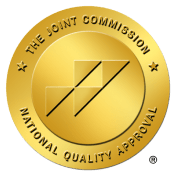Resources
Addiction Treatment and Substance Abuse Resources
Substance Abuse and Addiction Among LGBTQ Individuals
Recognizing the Need for Drug and Alcohol Rehab
People who identify as LGBTQ are more likely to face social rejection, verbal harassment, and social stigma than people who identify as heterosexual. Friends, family members, and loved ones may even be a source of judgment or rejection in an LGBTQ person’s life.
These issues can all lead to stress, anxiety, mental health problems, and substance abuse. According to the Centers for Disease Control and Prevention (CDC), LGBTQ individuals have a much higher rate of substance abuse and mental health problems than the general population. LGBTQ adults more than are twice as likely to abuse alcohol and drugs and between 38 and 65 percent of transgender individuals think about suicide.
- 20-30% of LGBTQ people abuse substances, compared to about 9% of the general population.
- 25% of LGBT people abuse alcohol, compared to 5-10% of the general population.
- Gay and transgender people smoke tobacco up to 200 percent more than their heterosexual and nontransgender peers.
- LGBTQ teens are six times more likely to experience symptoms of depression than the general population.
- Between 38-65% of transgender individuals experience suicidal ideation.
Although our society is continually taking steps to improve equality among all people, including those who identify as LGBTQ, there are still many instances of prejudice, discrimination, and social stigma in the workplace, at school, within interpersonal relationships, and in the health care industry, as well as elsewhere.
Understanding when professional help is necessary is crucial for recovery. This resource outlines signs indicating the need for rehab and offers guidance on taking the first steps toward treatment.
1 in 5
LGBT people abuse alchol
38-65%
Transgender individuals experience suicidal ideation
20-30%
Of LGBTQ People abuse substances (vs 9% for the general population)
200%
Gay & Transgender people smoke tobacco more than heterosexuals
6 Times
LGBTQ teens are more likely to experience symptoms of depressions
Paying for Rehab Without Insurance
Financing treatment can be a concern, especially without insurance coverage. This article explores alternative payment options, including private loans, payment plans, and other financial assistance programs.

Residential Rehab in Austin, Texas
For those considering residential treatment, this resource provides insights into the programs available in Austin, highlighting the benefits of immersive, inpatient care.

Maintaining Employment During Rehab
Balancing work and treatment is a common concern. This guide discusses strategies to keep your job while undergoing rehab, including understanding legal protections and effective communication with employers.
Understanding the Addiction Treatment Process
A clear overview of the stages involved in addiction treatment can demystify the journey to recovery. This article explains each phase, from initial assessment to aftercare planning.
Court-Ordered Rehab Programs
For individuals mandated to attend treatment by the legal system, this resource details what to expect from court-ordered rehab and how it can be an opportunity for positive change.

Court-Ordered Rehab Programs
For individuals mandated to attend treatment by the legal system, this resource details what to expect from court-ordered rehab and how it can be an opportunity for positive change.

1. Medical detox
This type of inpatient detox provides professional medical care during withdrawal from alcohol and other substances. Clinical counseling also gives clients an opportunity to work through emotional and psychological issues while preparing them for entry into a drug and alcohol rehab program.

2.Residential drug and alcohol rehab
Inpatient rehab offers intensive care for LGBTQ individuals with severe or long-lasting addictions. It provides a structured and supportive environment and a break from the stressors of everyday life so clients can focus on their healing and recovery.

3. Outpatient drug and alcohol rehab
Outpatient rehab is ideal for LGBTQ clients who cannot commit to a residential program. It offers more flexibility with flexible outpatient meetings so clients can tend to other obligations at work or home while they complete treatment.

3. Sober living program
LGBTQ-friendly sober living homes provide sober and judgment-free living spaces for people in recovery, in addition to recovery support and social services. This structured home environment acts as a buffer between residential rehab and the return to society to better prepare clients for the increased responsibilities of independent sober living.
There are also several different addiction recovery groups in Austin that cater to the LGBTQ population. They include:
- Beyond Belief
- Children of Chaos
- Four Points
- Lambda Live and Let
- Live
- Solutions
- Out and About
- Pride Laundromat
- Austin Roundup
- Center for Students in Recovery at UT Austin
- Communities for Recovery
Utilizing FMLA for Rehab
The Family and Medical Leave Act (FMLA) can provide job protection during treatment. This guide explains how to navigate FMLA for addiction rehab purposes.
Supporting Student Sobriety
Students face unique challenges in maintaining sobriety. This resource offers tips and strategies tailored to help students achieve and sustain recovery.
Incorporating these topics into the resources page will offer a comprehensive guide for individuals at various stages of seeking help, providing them with the necessary information to make informed decisions about their treatment options.
For more detailed information, you can visit Nova Recovery Center’s official resources page:
If you have further questions or need personalized assistance, don’t hesitate to reach out to Nova Recovery Center directly.
Schedule a call with us
Nova Recovery Center is dedicated to helping you or your loved one get help. Please call or fill out this form for a confidential consultation. One of our understanding, dedicated advisors will contact you about your options. Begin healing today.
